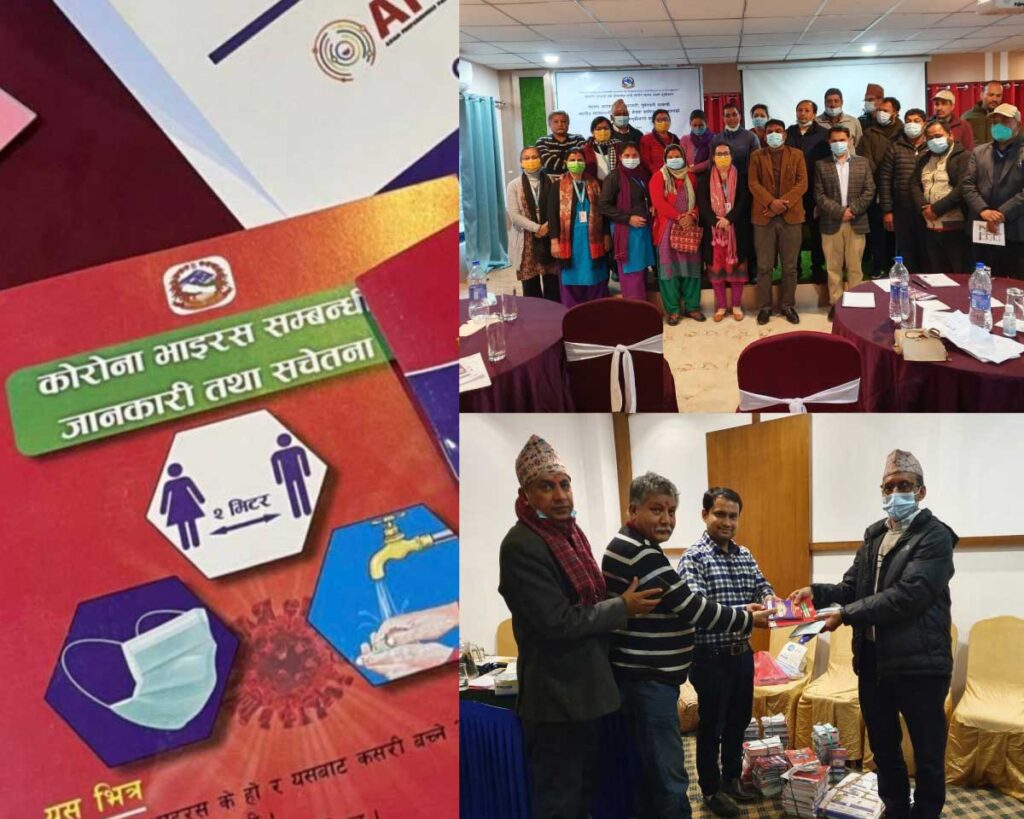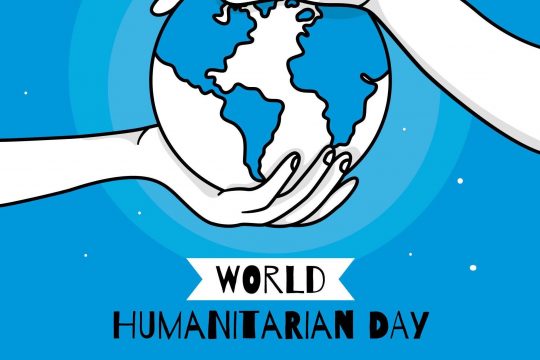The COVID-19 pandemic has highlighted the necessity to include public health in disaster relief efforts and preparing frontline actors against pandemics is essential. With this vision, the Ministry of Home Affairs, Ministry of Health and Population, Government of Nepal; the Asian Preparedness Partnership (APP); the Asian Disaster Preparedness Center (ADPC); Bill & Melinda Gates Foundation (the foundation); National Disaster Risk Reduction Centre Nepal (NDRC); Chaudhary Foundation/ Nabil Bank; and Nepal Disaster Resilient Network (NDR Net) organized the “Strengthening Local Health Systems for Preparedness and Response to Pandemics” to assist the COVID-19 Response at Local Level’ training/ orientation.
The sessions were conducted across all seven provinces in Nepal between 4 January and 4 February 2021. The event presented government-approved standard operating procedures (SOPs), guidelines, policies, plans, and protocols on preparedness. The event sought to build the capacity of local health workers by providing knowledge on health emergencies and pandemic management. It was also an opportunity to bridge the gap between national policy and protocols that do not reach the grassroots level as well as identifying the right channels for accurate information. The locations for the training were considered in an effort to reach concerned actors with the hopes that this knowledge trickle down to the most local and hard-to-reach communities.
It covered matters that included, ambulance- pre/post-hospitalization, containment and mitigation measures, possible options for preparedness and response plan (e.g. capacity building, community systems strengthening, home isolation, and quarantine management), myths and reality and risk communication, disaster management policies and institutional, mechanisms in Nepal, building resilient health systems at the local levels, and the role and responsibility of local level government and other stakeholders in COVID Response. In each training session, about twenty-five (25) participants largely from the government and non-government sectors (suppliers and service providers, relief workers, local humanitarian organizations, and health resources personnel) participated.

Attendants participated for a better understanding of government-issued protocols and how they could better utilize these measures in their response to pandemic situations. They were also equipped with the knowledge to address implementation gaps to prevent similar occurrences or challenges in the future. Along with this initiative, the private sector engagement in disaster risk reduction (DRR) has been strengthened through ADPC/APP intervention at the national, province, and local levels in Nepal.
Geeta Devi Neupane of the CNI Siddharthanagar Municipality connected the productivity of the session to deliverable modality, “ The events shared knowledge and information in a simple and understandable way for all the understand the various guidelines and directives that we have been working with during the pandemic response. It has provided us the opportunity to seek clarification with doubts we had while working.”
Gyanu Poudyel, the Chairperson of the NAMUNA Organization, highlighted the benefits from previously unknown insights- “We realize the practical challenges and gaps we had faced during our pandemic response at the local level. Alongside it has prompted us (NGO sector) to work closely with the lead authorities to mitigate and improve on it to better prepare ourselves at the local level.”
Ashesh Baral, the Assistant Manager of Chaudhary Foundation, highlighted the paradigm shift of Private Sector CSR from Relief to Risk-reduction and Preparedness. The recognition from the government on the COVID-19 response further encouraged the private sector to deepen the issue and contribute to national plans and priorities in the Health and DRR sector. The learning of this program will reshape the CSR guideline and roadmaps of private sector engagement on DRR in Nepal.


